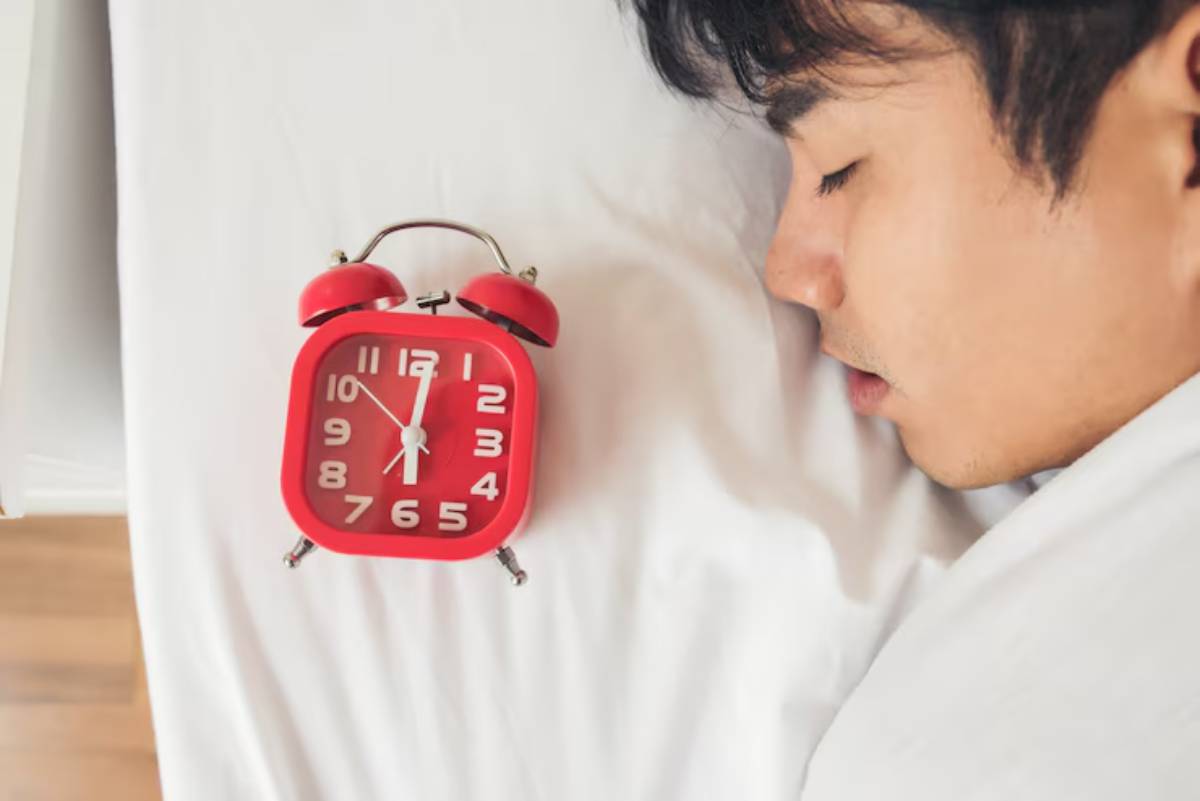The Health Blog

Establishing a Consistent Sleep Routine
You know that feeling. It’s late, you’re scrolling mindlessly through your phone, telling yourself just one more video… and suddenly, it’s 1:00 AM. Again.
And in the morning? You wake up groggy, frustrated, and wondering how you’re supposed to be a functioning adult when your brain still feels like it’s in dreamland.
If this is your nightly dance, you’re not alone. Many of us live in this weird space between exhaustion and wired — desperate for rest, but somehow stuck in a cycle of inconsistent sleep. The good news? It’s fixable. And no, it doesn’t require a dramatic overhaul or magic pills.
What it does take is intention. A little commitment. And, maybe most importantly, a bit of kindness toward yourself as you find your rhythm.
So let’s talk about sleep routine tips that actually help — the kind rooted in real life, not perfection.
First Things First: Why Sleep Routines Matter

Think of your brain like a toddler. It loves routine. It thrives on consistency. And when you throw it into chaos every night with unpredictable bedtimes, endless screens, or late-night snacks, it gets confused. The result? Poor sleep, groggy mornings, low energy, mood swings — you get the picture.
A consistent sleep routine sends your brain a simple message: Hey, it’s bedtime. You’re safe. You can let go now.
It’s not about being strict or rigid. It’s about creating a predictable flow that lets your body remember how to rest — something we’re all born knowing, but many of us forget.
The 7 Sleep Routine Tips That Changed My Life (No Joke)

Okay, “changed my life” sounds dramatic. But once I got the hang of these habits, my nights felt smoother, and my mornings didn’t hit quite so hard.
Here’s what helped:
1. Set a Consistent Sleep and Wake Time — Even on Weekends
Waking and sleeping at the same time every day trains your body’s internal clock — your circadian rhythm — to run on autopilot. Once it’s locked in, you’ll start getting sleepy at the right time and waking up without an alarm (eventually, not overnight — don’t panic).
Start with a 30-minute window. Pick a bedtime and wake-up time that feels manageable, not aspirational. You’re aiming for healthy sleep habits, not martyrdom.
2. Create a Wind-Down Window (Not Just a Single Action)
Too many people treat “getting ready for bed” like a light switch. One second, they’re answering emails. The next, they expect to be asleep. No wonder it doesn’t work.
Instead, give yourself a wind-down window — 30 to 60 minutes of calm before bed. Think of it like landing a plane. You don’t just drop out of the sky. You glide in, gently.
Some ideas:
- Turn off bright lights (lamps are your friend)
- Make a cup of herbal tea (chamomile, lemon balm, or rooibos are great for natural sleep improvement)
- Read something low-stakes — nothing too thrilling
- Stretch or do gentle yoga (YouTube has some lovely routines)
- Journal to clear your head
For an in-depth setup guide, read our article on Creating a Sleep-Friendly Bedroom Environment.
3. Keep Your Bedroom a Tech-Free Zone
Look, I won’t tell you to never look at your phone before bed. That’s unrealistic for most of us. But try this: Set a screen cut-off time.
Even 30 minutes before sleep can make a difference.
The blue light from screens messes with melatonin production, which is the hormone that helps you fall asleep. Beyond that, doomscrolling or replying to work emails at midnight just isn’t good for your nervous system.
Put your phone on airplane mode. Leave it in another room if you’re brave. Buy a cheap alarm clock. Your sleep will thank you.
4. Use Cues to Train Your Brain
Here’s a strange but true tip: Repetition creates signals.
If you do the same small actions before bed every night — like brushing your teeth, dimming the lights, or putting on a certain sleep playlist — your brain starts linking those cues to “It’s time to wind down.”
It’s like muscle memory, but for your mind.
I light the same lavender candle every night. It’s silly, maybe, but the smell now triggers this automatic sigh in my body. Find your cue and use it.
5. Watch the Timing of Caffeine, Food, and Booze
This one’s less fun, but important.
- Caffeine stays in your system longer than you think — up to 8 hours. Try cutting it off by early afternoon.
- Heavy meals too close to bedtime can mess with digestion and keep you up.
- Alcohol might make you sleepy at first, but it wrecks the quality of your sleep later in the night.
Does this mean no dessert, no wine, no fun? Of course not. Just be aware of how late-night choices might ripple into your rest.
6. Get Natural Light During the Day
This surprised me. Turns out, what you do in the morning can affect how well you sleep at night.
Getting 10–15 minutes of natural light — ideally within an hour of waking up — helps reset your internal clock and tells your body what time it is. It boosts mood, too.
Open the curtains. Sit near a window. Step outside with your coffee. It’s one of the easiest and most overlooked natural sleep improvement tricks.
7. Don’t Lie in Bed Wide Awake
Here’s a tough one, but hear me out.
If you’re lying in bed for more than 20–30 minutes, tossing and turning, get up. Staying in bed while frustrated can train your brain to associate bed with stress — the opposite of what you want.
Go to another room. Read something boring. Stretch. Sip water. Come back to bed when you feel sleepy again. It’s counterintuitive, but it works.
But What If You Still Can’t Sleep?

Let’s be honest — sometimes you do everything “right” and you still can’t sleep. That’s okay.
Insomnia, stress, life transitions, grief, hormones — they can all mess with sleep in ways that a routine alone can’t fix. If your sleep problems stick around for more than a few weeks, talk to someone. Your GP, a sleep coach, a therapist — you deserve support.
In the meantime, keep showing up. Sleep is a long game. Every good habit adds up.
A Quick Word About Kindness
It’s tempting to treat sleep like a battle. You measure hours, track scores, feel like you’re failing when things don’t improve right away.
But here’s the truth: Rest can’t be forced. What it can be is invited.
Creating a consistent sleep routine isn’t about being perfect. It’s about creating an environment — both around you and within you — that makes rest feel safe and welcome.
And yes, you’ll have off nights. That doesn’t mean you’ve ruined everything. You’re human. And this isn’t a test you can fail.
Start Small, Stay Gentle
You don’t need to transform your nights overnight. Pick one of these sleep routine tips that stood out to you. Try it for a few nights. Then layer in another. Let the changes grow slowly, like roots.
And above all — listen to your body. It’s been trying to talk to you. A good night’s sleep isn’t just about what you do at bedtime. It’s about how you live your days, how you manage your stress, and how you show up for yourself.
So light a candle. Put the phone down. Breathe.
Sleep is waiting. And it wants to meet you there.









